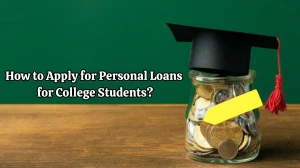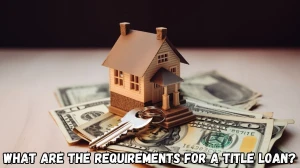
PPP Loan Forgiveness and What is the Deadline for PPP Loan Forgiveness?
PPP Loan Forgiveness is the process through which businesses that received Paycheck Protection Program (PPP) loans during the COVID-19 pandemic can have their loans partially or entirely forgiven, providing essential financial relief to eligible small businesses.
by Sai V
Updated Oct 24, 2023
On This Page
PPP Loan Forgiveness
PPP Loan Forgiveness refers to the process by which businesses that received Paycheck Protection Program (PPP) loans during the COVID-19 pandemic can have a portion or the entirety of their loan amount forgiven. The PPP was a federal program designed to provide financial relief to small businesses, and loan forgiveness is a key component to alleviate the financial burden on these businesses.
Eligible businesses can apply for forgiveness through their lender or, if their loan was under $150,000, directly through the Small Business Administration (SBA). This forgiveness provision has been instrumental in helping many businesses weather the economic challenges brought about by the pandemic, allowing them to emerge from the crisis with reduced debt and greater financial stability.
PPP Loan Forgiveness Application
The Paycheck Protection Program (PPP) Loan Forgiveness Application process is crucial for businesses and organizations that have received PPP loans. This process allows borrowers to seek forgiveness for the loan amount, provided certain conditions are met. Below, we outline the key steps and requirements for completing the PPP Loan Forgiveness Application.
Eligibility and Portal Usage
- Determine eligibility for the SBA's Direct Forgiveness Portal, designed for loans of $150,000 or less.
- Eligible borrowers can use the portal for streamlined application submission.
- If your lender isn't part of the portal, apply through them.
Document Preparation
- Gather payroll documentation: bank statements, tax forms, and proof of employer contributions.
- For non-payroll expenses, collect lease agreements, invoices, receipts, and statements.
Submission of Application
- Submit your application via the Direct Forgiveness Portal (if eligible) or through your lender.
- Be prepared for possible additional documentation requests.
Decision and Appeal
- Expect a decision within 60 days from the SBA or your lender.
- Approved forgiveness may cover all or part of the loan.
- If denied, you can appeal through the SBA's Office of Hearings and Appeals (OHA).
- Provide a detailed statement and supporting documents for your appeal.
- Watch your email for OHA communications and respond promptly.
Is PPP Loan Forgiveness Taxable?
Yes, in general, forgiven loans are considered taxable income, which means that they are subject to taxation. However, when it comes to PPP (Paycheck Protection Program) loan forgiveness, there is a significant exception.
The federal government, through the Small Business Administration (SBA), has made a specific provision that allows borrowers to exclude the canceled amount of an eligible PPP loan from their taxable income. This means that, under normal circumstances, PPP loan forgiveness is not taxable, providing much-needed financial relief to businesses affected by the COVID-19 pandemic.
What are the eligible expenses for PPP loan forgiveness?
In the context of PPP loan forgiveness, here are the essential categories of eligible expenses businesses need to consider.
Payroll Expenses
- To qualify for full forgiveness, at least 60% of the PPP loan must be spent on payroll.
- Payroll costs include wages, commissions, bonuses, and payments for insurance and retirement benefits made on behalf of employees.
Operating Costs
- Eligible operating costs encompass mortgage payments, rent, software expenses, and utility bills.
- These costs are forgivable if they are incurred during the covered period specified in the PPP program.
Supplier Costs
- Costs associated with goods necessary for business operation are forgivable if these goods were ordered before the start of the covered period.
- Perishable goods ordered during the covered period are also eligible for forgiveness.
Property Damage Expenses
- If a business's property sustains damage during the covered period, the repair costs may be included in the forgiveness application.
- However, this is contingent on the business not having received compensation for the damages from insurance.
Worker Protection Expenses
- Costs incurred for personal protective equipment (PPE) for workers or the installation of safety barriers during the pandemic are eligible for forgiveness.
Enter the world of MarketsHost, where financial clarity meets business excellence. Explore, envision, and rise.
What is the Deadline for PPP Loan Forgiveness?
The deadline for PPP (Paycheck Protection Program) loan forgiveness varies based on when borrowers choose to apply for it. Borrowers have the flexibility to apply for forgiveness at any time up to the maturity date of the loan. This means there isn't a strict, fixed deadline by which borrowers must request loan forgiveness.
However, it's crucial to note that if borrowers do not apply for forgiveness within 10 months after the last day of their chosen covered period (either the 8- or 24-week period after receiving the loan), the PPP loan payments will no longer be deferred, and borrowers will start making payments to their PPP lender. To maximize the benefits of loan forgiveness, borrowers should adhere to the program's guidelines and apply for forgiveness within a reasonable timeframe.
What Documents Are Required for Ppp Loan Forgiveness?
Here are the essential documents needed for PPP loan forgiveness, categorized based on loan amount and type.
For First-Draw Loans Less Than $150,000
- Certification form attesting compliance with program rules.
For Second-Draw Loans Less Than $150,000
- Proof of at least a 25% drop in revenue for a quarter in 2020 compared to the same quarter in 2019.
For Loans Greater Than $150,000
Evidence of eligible expenses spent, which may include:
- Third-party payroll reports
- State and local quarterly financial reports
- State unemployment insurance filings
- Bank statements
- Tax documents (e.g., Form 1040 Schedule C or Schedule F, Form 1065 Schedule K-1, Form 941, Form 944, Form W-2, Form W-3)
- Payment receipts, canceled checks, or account statements for employer health and retirement contributions
- Account statements
- Utility bills with payment records
- Purchase orders, contracts, and receipts for vendor payments
- Canceled checks or receipts for covered expenses
PPP Loan Forgiveness - FAQs
1. Is PPP loan forgiveness taxable income?
No, under the PPP program, forgiven loan amounts are not considered taxable income.
2. What are the eligible expenses for PPP loan forgiveness?
Eligible expenses include payroll costs, operating costs (rent, mortgage, utilities), supplier costs, property damage expenses, and worker protection expenses (PPE).
3. What is the deadline for applying for PPP loan forgiveness?
Borrowers can apply for forgiveness at any time up to the maturity date of the loan, but it's advisable to apply within 10 months after the chosen covered period to avoid payment resumption.
4. How do I appeal if my PPP loan forgiveness application is denied?
If your application is denied, you can appeal through the SBA's Office of Hearings and Appeals (OHA) by providing a detailed statement and supporting documents.
5. What documents are required for PPP loan forgiveness?
Required documents vary based on loan amount and type but may include payroll records, financial reports, tax documents, and payment receipts, among others.




